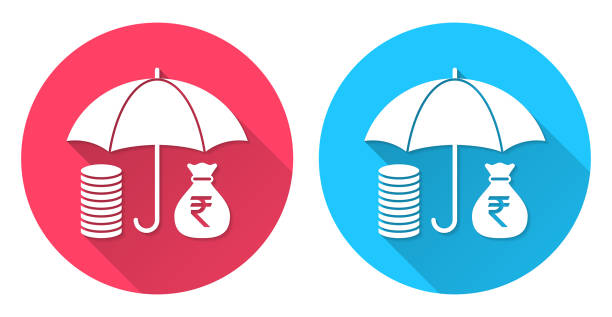When you look for the best term insurance in India or consider availing life insurance, you may find it confusing initially. Don’t worry! This article will make you understand both in really simple English. We will tell you what they are, how they differ, and which one could be best suited for you. Whether you are young or old, this article has been prepared in a way that everyone can easily read.
Menu list
What Is Term Insurance?
Term insurance is a safety net. You pay a little money at regular intervals, perhaps monthly or annually. If you face an untimely demise during the term (such as 10, 20, or 30 years), your family receives a substantial sum of money. This money supports them to live their life without you.
But if nothing has happened to you during the term, the plan comes to an end, and you receive no money back. That’s why it is less expensive. It only pays money when you are not there.
Some of the important facts about term insurance are:
- It pays only for death.
- It does not pay back money if you survive the policy.
- It is extremely cheap, particularly when you are young.
- You have the option of how long it will last and how much your loved ones get.
What Is Traditional Life Insurance?
Traditional life insurance is a little different. It provides you with protection and savings. Similar to term insurance, you pay monthly. But here’s something unique: whether you live or pass away, the plan pays you money.
If you die, your loved ones receive the money. But if you live to the end of the policy, you receive some cash back. This can be like a savings plan with some added protection.
Some key things about conventional life insurance:
- It pays for death and returns money to you if you survive.
- It’s more expensive than term insurance.
- You can use it to accumulate funds for future requirements such as retirement or your child’s education.
- Certain plans provide annual bonuses which accumulate.
How Are Term Insurance and Life Insurance Different?
Let’s discuss the differences in a straightforward manner. Term insurance is only for protection. If something happens to you, your family gets the money. But if you’re safe and healthy after the policy ends, there’s no money returned. That’s why it’s much cheaper. It is very simple and easy to understand.
Ordinary life insurance, in contrast, is a combination of saving and protection. It pays your family when you die. But it also pays a bit of money back to you if you don’t die. Because it has this added bonus, it is more expensive than term insurance. It can also be slightly more complicated with additional features, such as bonuses or maturity payments.
In summary, therefore:
- Term insurance is ideal for those who just want to safeguard their family.
- Life insurance is great for individuals who also need to save and receive money back in the future.
Which One Do You Want?
Now let us make a decision on your behalf.
Select Term Insurance If:
- You simply want to ensure your family if you die.
- You are young and do not want to pay much.
- You do not require savings or money back from your policy.
- You want a simple, easy-to-understand plan.
Choose Life Insurance If:
- You want both protection and savings.
- You don’t mind paying more for extra benefits.
- You want to get money back when the plan ends.
- You are planning for future expenses like your child’s education or your own retirement.
A Simple Story to Understand Better
Let’s meet two friends: Ravi and Anita. Ravi is 30 years old. He works in an office and resides with his parents. He wants to ensure that if anything happens to him, his parents will be well off. He does not mind savings at present. Therefore, Ravi selects term insurance. It’s inexpensive, straightforward, and insures his parents.
Anita is 30 years old too. She is married and also has a 5-year-old child. She wishes for a plan that provides her with security as well as saves her for her child’s future. She picks up traditional life insurance. It is expensive, but she prefers getting money back in the future. Both Ravi and Anita made intelligent decisions according to their requirements.
Tips Before You Buy Insurance
Before selecting any policy, remember these tips:
- Know what you need – Do you want protection alone? Or do you also want to cut costs?
- Check your finances – Term cover is less expensive. Life cover requires more money.
- Know the policy – Read what the plan promises. Clarify questions if necessary.
- Search for add-ons – Some plans provide critical illness protection, accident cover, or waiver of premium.
- Compare various companies – Ensure you have some reputable names, excellent service, and quick claim procedures.
- Use online calculators – Most websites have tools to assist you in selecting the correct cover amount and term.
Quick Recap in Simple Words
Let’s go through everything very quickly again:
- Term insurance is an inexpensive plan. It pays money to your loved ones only if you pass away. If you survive, you receive nothing. It is wonderful if you need only protection.
- Life insurance provides money to your loved ones when you die and provides you with money when you survive. It is costlier but fine if you are interested in savings also.
You may consider term insurance similar to renting a safety helmet it guards you only when required. But life insurance is similar to purchasing a helmet which also becomes a piggy bank you have protection and savings.
Conclusion:
Both life insurance and term insurance are good deals, but suited for different individuals.
If you prefer plain, affordable cover for your loved ones, opt for term insurance. If you prefer to combine savings with security, and are willing to pay a little extra, opt for life insurance.
You don’t have to be a financial guru to make a smart decision. Just consider your needs, your family, and your plans for the future. Then choose the plan that suits you best. Remember, the right insurance plan brings you peace of mind, and that’s what every individual deserves.





